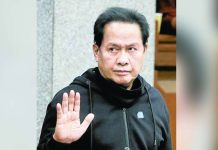
POLICE Brigadier General Josefino Ligan’s inaugural message as the new regional director of Police Regional Office 6 (PRO-6) is a bold and welcome departure from vague assurances of peace and order. His clear and uncompromising call for swift police action — and the promise to personally evaluate the performance of all police commanders under his watch — sends a strong message: accountability in the police force is no longer optional.
The emphasis on performance-based leadership and measurable outcomes is long overdue. For too long, the public has endured sluggish police response, unresolved petty crimes, and the occasional abuse of authority without sufficient oversight. Ligan’s directive reframes police service as a matter of trust earned through action — “by showing up when people need us the most.”
In a region like Western Visayas, where urban-rural disparities exist and public trust in law enforcement varies by locality, holding commanders to high standards is not just desirable — it is essential. The role of a police commander goes beyond internal management; it defines the tone and effectiveness of every officer in the precinct. A disengaged commander fosters inefficiency; a results-oriented one inspires responsiveness.
But for Ligan’s reformist stance to succeed, transparency must go hand in hand with internal assessments. We strongly urge PRO-6 to institutionalize public performance audits — regular, published evaluations of each command’s response time, crime resolution rate, and community engagement efforts. These audits should not be kept behind closed doors; they should be made accessible to the very citizens the police serve.
Further, citizen feedback mechanisms may be formalized and given weight in command evaluations. People know firsthand how responsive — or unresponsive — their local police stations are. Text hotlines, anonymous surveys, and barangay-level consultations can provide valuable, real-world data on police behavior and service quality.
Police Brigadier General Ligan’s tenure comes at a critical moment, when public expectations for transparency and efficiency in law enforcement are higher than ever. He has set the tone with clarity. The challenge now is to back strong words with stronger systems.
Make police accountability more than just a leadership style. It must be a culture — one that holds every commander answerable not just to superiors, but to the communities they are sworn to protect.







